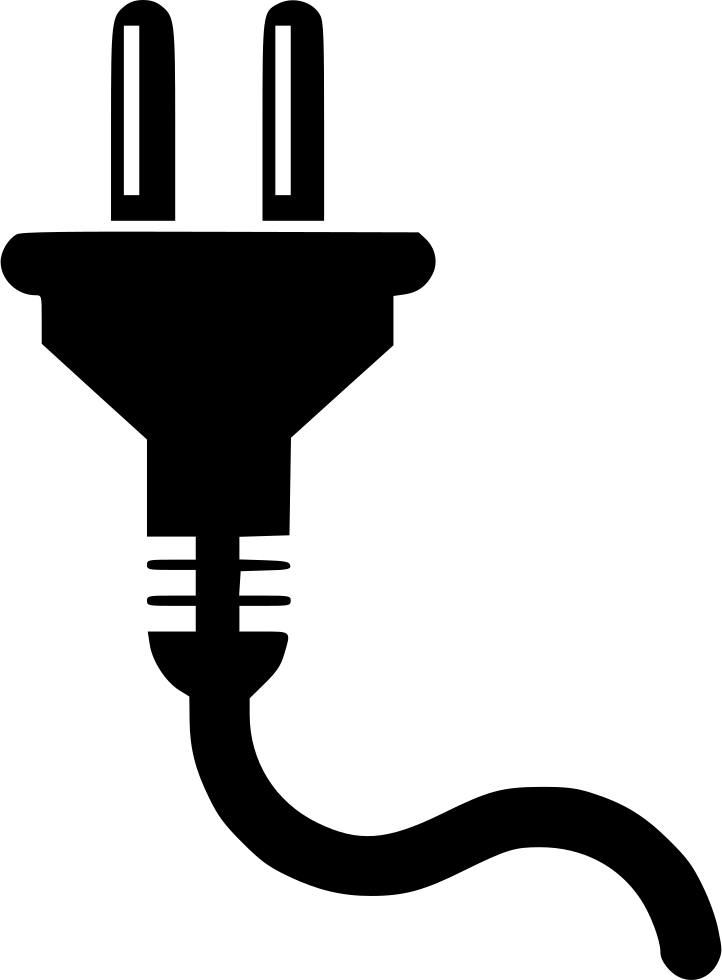
This image has format transparent PNG with resolution 722x980.
You can download this image in best resolution from this page and use it for design and web design.
Power electric plug PNG with transparent background you can download for free, just click on download button.
AC power plugs and sockets connect electric equipment to the alternating current (AC) mains electricity power supply in buildings and at other sites. Electrical plugs and sockets differ from one another in voltage and current rating, shape, size, and connector type. Different standard systems of plugs and sockets are used around the world.
Plugs and sockets for portable appliances became available in the 1880s, to replace connections to light sockets with wall-mounted outlets. A proliferation of types developed for both convenience and protection from electrical injury. Today there are about 20 types in common use around the world, and many obsolete socket types are found in older buildings. Coordination of technical standards has allowed some types of plug to be used across large regions to facilitate trade in electrical appliances, and for the convenience of travellers and consumers of imported electrical goods.
Some multi-standard sockets allow use of several types of plug; improvised or unapproved adaptors between incompatible sockets and plugs may not provide the full safety and performance of an approved socket-plug combination.
A plug is the movable connector attached to an electrically operated device, and the socket is fixed on equipment or a building structure and connected to an energised electrical circuit. The plug is a male connector, often with protruding pins that match the openings and female contacts in a socket. Some plugs have female contacts that are used only for an earth ground connection. Some plugs have built-in fuses for safety.
To reduce the risk of electric shock, plug and socket systems have safety features in addition to the recessed contacts of the energised socket.
A socket may be surrounded by a decorative or protective cover which may be integral with the socket.
Single-phase sockets have two current-carrying connections to the power supply circuit, and may also have a third pin for a safety connection to earth ground. Depending on the supply system, one or both current-carrying connections may have significant voltage to earth ground.
Alternative II, popularly known as the Europlug, is a flat 2.5 A-rated plug defined by Cenelec standard EN 50075 and national equivalents. The Europlug is not rewirable and must be supplied with a flexible cord. It can be inserted in either direction, so line and neutral are connected arbitrarily. To improve contact with socket parts the Europlug has slightly flexible pins which converge toward their free ends.
There is no socket defined to accept only the Europlug. Instead, the Europlug fits a range of sockets in common use in Europe. These sockets, including the CEE 7/1, CEE 7/3 (German/"Schuko"), CEE 7/5 (French). Most Israeli, Swiss, Danish and Italian sockets, were designed to accept pins of various diameters, mainly 4.8 mm, but also 4.0 mm and 4.5 mm, and are usually fed by final circuits with either 10 A or 16 A overcurrent protection devices.
UK shaver sockets are designed to accept BS 4573 shaver plugs while also accepting Europlugs. In this configuration, the connection supply is only rated at 200 mA. It is not permissible within the UK for the shaver socket to be fitted and used for a higher rated current draw than the 200 mA maximum.
The Europlug is also used in the Middle East, Africa, South America, and Asia.
In this page you can download free PNG images: Power electric plug PNG images free download